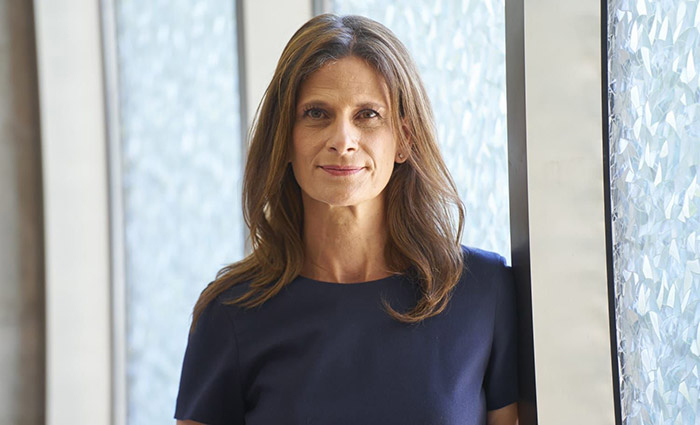Israeli Scene
Personality
Michal Cotler-Wunsh on Defining the Battle Against Antisemitism

Michal Cotler-Wunsh had only been serving as Israel’s special envoy for combating antisemitism for a few weeks when Hamas brutally attacked Israel on October 7. While some newcomers to the position might have felt unprepared for the moment, the former member of Knesset, attorney and expert on international human rights law said she was in exactly the right place to contend with the ensuing “tsunami of antisemitism.”
Since the horrific attack, the 53-year-old, who lives in Ra’anana with her husband and four children, described how she has been traveling the world to meet with fellow antisemitism envoys, decision-makers and Jewish community leaders in order to explain how she believes Israel and the Jewish people got to this point—and how we should now move forward.
Cotler-Wunsh, who recently addressed the annual Institute for the Study of Global Antisemitism and Policy in Oxford, in the United Kingdom, said she believes that “this is an existential moment for the Jewish people, for the State of Israel and for our shared civilization.”
Cotler-Wunsh said that she is inspired in her work by her father, Irwin Cotler, a former Canadian justice minister and member of parliament who was appointed Canada’s first special envoy for preserving Holocaust remembrance and combating antisemitism in 2020. This interview has been edited for brevity and clarity.
What steps have you taken to address the surge in antisemitism since October 7?
It’s a continuum of what I did previously as an academic, a researcher and a legislator, all from the perspective of international law and human rights. I have been in Washington, where U.S. Special Envoy for Combating Antisemitism Deborah Lipstadt convened a meeting with the social media platforms about the national security threat that online antisemitism presents for the U.S. I was also in Argentina where, with envoys from around the world, we put together a list of global guidelines for combatting antisemitism based on the International Holocaust Remembrance Alliance (IHRA) definition of antisemitism.
Antisemitism—and this is why I refer to the IHRA definition—is one single hatred that has mutated over thousands of years. It is something that has existed for as long as the Jewish people have existed and it has many, many different forms. The IHRA has 11 examples that are part of a comprehensive definition, which includes demonization, delegitimization and double standards, whether toward an individual Jew barring him or her from an equal place in society, or whether toward demonization, delegitimization and double standards toward the proverbial Jew among the nations—that is, the State of Israel.
What is your key message to Jews in Israel as well as those in the Diaspora?
Even with the trauma of October 7, I believe it also presented us with a silver lining to understand that the Jewish people are one people, whether in Israel or elsewhere.
I also believe that antisemitism is very real—it is not something from the past, it is not something that is just for Diaspora Jews. Therefore, it is important for all global Jewry to understand that Israel’s safety and security is inextricably bound to the safety and security of Jews around the world—and the safety and security of Jews around the world is inextricably bound to the safety and security of the State of Israel.
What can be done to combat antisemitism on college campuses?
I met with 20 university presidents, including many in Canada, Europe, the United States and the United Kingdom. I emphasized that everything begins and ends with identifying antisemitism. Even if they are committed to combating antisemitism, it cannot be done without a definition. So, the focus must be on getting them to adopt IHRA.
Are you worried about anti-Jewish sentiment on social media and some mainstream media?
I am adamant that Israel must recognize what I refer to as the manifestation of an unconventional war for public opinion aimed at demonizing Israel and applying a double standard. It is an existential threat, and today we can see how it is dictating Israel’s capacity to defend itself on other war fronts.
What drives you to keep fighting?
I see myself as a link in a chain: I am my parents’ daughter, and I’m my children’s mother. I am also a link in the chain of the Jewish people and I am committed to Jewish continuity through a very specific lens of human rights and Zionism. All my expertise and experiences have brought me to this moment.
Ruth Marks Eglash is a Jerusalem-based veteran journalist who writes for multiple outlets.









 Facebook
Facebook Instagram
Instagram Twitter
Twitter
William Goldiet says
Im Canadian, originally from South Sudan, a country that has been at war against the same enemy to Jews. I was moved by Michal Cotler-Wunsh.speech this morning at memory of Oct 7 in Ottawa. I want to connect with Jew people. Jews should not be left alone to fight all Arabs and all Muslims who are mobilizing the world to support them against Jews. I hope some body can pass my email to her or any Jew organizations or activities willing to mobilize African people to stand with Jews.
William Goldiet
wgoldiet22@gmail.com